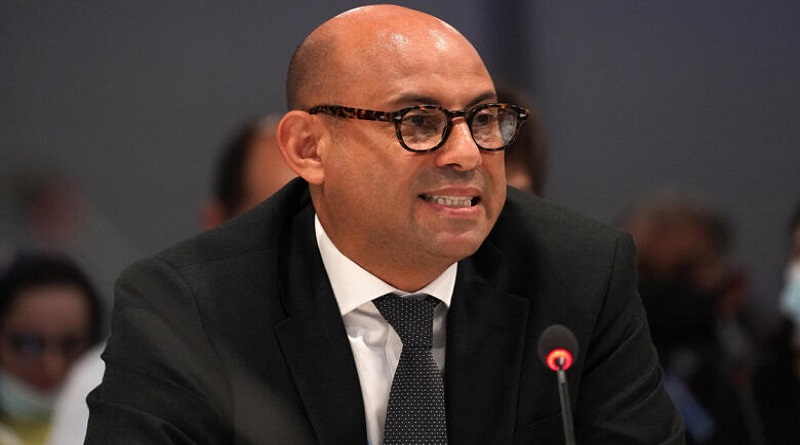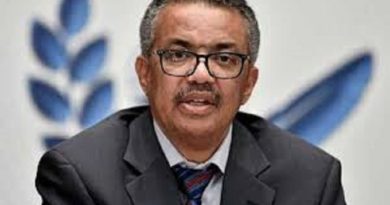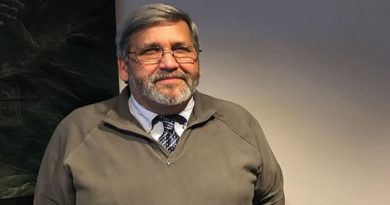Adaptation Fund mobilizes over $133mn for most vulnerable at COP30 in Brazil
More than 133 million USDeq in new pledges to the Adaptation Fund were announced early during the second week of the UN COP30 climate change conference here.
New contributions will enable the Fund to continue to build and scale up climate resilience for the most vulnerable. Pledges announced include those from Germany (69.3 million USDeq), Spain (23.1 million USDeq), Sweden (13.2 million USDeq), Ireland (11.5 million USDeq), Luxembourg (5.7 million USDeq), Switzerland (5.1 million USDeq), Belgium’s Walloon Region (3.4 million USDeq), South Korea (842,700 USDeq) and Iceland (617,100 USDeq).
Resource mobilization is critical for the Fund at the Belém conference as it seeks a minimum target goal of raising at least US$ 300 million in 2025 to help put it on the path towards tripling its outflows by 2030, in accordance with decisions taken at COP29, and help meet a growing pipeline of projects under development that has surpassed US$ 1 billion. The Fund is hopeful other contributors may come forward before the end of the conference.
“We are very thankful for the new pledges, and hope more will follow. The Adaptation Fund is a good investment in our collective future. For 18 years, the Fund has been helping developing countries adapt and build resilience through funding locally rooted, tangible and scalable projects on the ground. This will help us reach more vulnerable communities who need it most,” said Washington Zhakata, Vice-Chair of the Adaptation Fund Board.
“We are grateful to all of the contributors for stepping up to deliver effective adaptation action. They will help the Adaptation Fund reach more vulnerable communities in developing countries with urgently needed adaptation projects on the ground,” said Mikko Ollikainen, Head of the Adaptation Fund. “The Adaptation Fund faces unprecedented demand for its work, and can receive funds from a variety of sources, so we are also hopeful others will come forward in the coming days.”
The impact of the Fund is clear. It has committed US$1.5 billion to over 200 concrete adaptation projects in 108 countries through country systems and local leadership, with about half its portfolio in LDCs or SIDS. It is producing measurable resilience for more than 65 million people, protecting nearly 1 million hectares of natural habitat and creating over 600 early warning systems.
The Fund further pioneered Direct Access empowering country ownership in adaptation, and has expanded its funding windows in recent years to include those in project scale-up, Locally Led Adaptation and Innovation, among others.
Stakeholders, contributor and recipient governments alike praised the work of the Fund during the Fund’s Contributor Dialogue at COP30 and in high-level conference segments.
“Adaptation to climate change is rightly a key focus of COP30,” said H.E. Carsten Schneider, German Minister for the Environment, Climate Action, Nature Conservation and Nuclear Safety. “Societies that are not able to adapt to the new climatic conditions face the threat of hunger and poverty. People are forced to leave their homes. Many countries depend on international cooperation to adapt successfully. Germany has been a reliable partner in this area for many years. I hope that our contribution will build trust further and lend momentum to the search for joint solutions in Belém.”
Ms. Mónica Corrales, Director of European and Multilateral Sectoral Cooperation at the Spanish Agency for International Development (AECID) in Spain, said adaptation saves lives, prevents and reduces risks, and creates economic opportunities as the Fund empowers women and vulnerable groups through Locally Led Adaptation. “The Adaptation Fund has been the premier,” she said. “It was the first fund to empower countries through direct access. We need to accelerate our effort and scale up where it’s needed the most.”
Mr. Leif Holmberg, Deputy Director of Sweden’s Ministry for Foreign Affairs, said Sweden’s long-standing support for the Fund reflects the need to continue to innovate scalable solutions. “Why do we value the Adaptation Fund so highly, because it delivers direct, country-owned projects that strengthen resilience where it matters most,” he said.
H.E. Mr. Darragh O’Brien, Ireland’s Minister for Climate, Energy and the Environment, said the Fund’s work supporting LDCs and SIDS (composing about half of the Fund’s portfolio) adapt to climate change is pivotal, as Ireland continues to increase its pledges each year. “The work of the Adaptation Fund is very closely aligned to Ireland’s climate adaptation finance priorities,” he said. “It is about our investment in our future and those at the front lines of climate change.”
Mr. Thomas Schoos, Director-General for International, European and Internal Affairs for Luxembourg’s Ministry of the Environment, Climate and Biodiversity, praised the Fund for the crucial role it plays in adaptation finance for the most vulnerable.
H.E. Madam Cécile Neven, Minister of Energy, Air-Climate Plan, Housing and Airports for the Walloon Regional Government of Belgium, said Wallonia’s pledge will help scale up the Fund’s work and send a strong signal to strengthen resilience on the ground. “The Adaptation Fund has a direct impact on people’s lives,” she said.
Ms. Gudrun Thorsteinsdottir, of Iceland’s Ministry of Foreign Affairs, said the Fund is one of Iceland’s primary climate partners. “Our partnership with the Adaptation Fund ensures local adaptation efforts and concrete impacts,” she said. “We thank the Adaptation Fund for their tireless work, leadership and dedication to create a more sustainable, resilient future for all.”
Ms. Alice de Moraes Amorim Vogas, Program Director of the COP30 Brazilian Presidency, said action on adaptation is more urgent than ever as it serves not only to reduce risks but a source of opportunity while protecting vulnerable people and stabilizing economies. “To work faster, we need credible funds. The Adaptation Fund plays an indispensable role,” she said, citing the Fund’s work over nearly two decades, its unique direct access modality and locally led actions that have been praised by local governments, indigenous peoples and others alike. “The Adaptation Fund must remain at the center of our collective efforts. We must strengthen capacity, broaden partnerships and build a safer more resilient future for all.”
COP29 President H.E. Mr. Mukhtar Babayev of Azerbaijan said the Fund provides concrete projects and pioneers new ways to empower countries to develop them directly. He emphasized the importance of tripling the Fund’s outflows by 2030. “Adaptation funding means countries protected, it means lives saved,” he said. “The Adaptation Fund plays an important role in the climate finance landscape. It is a cost-effective investment for security and stability.”
Mr. Daniele Violetti, Senior Director of Programmes Coordination at the UNFCCC, said adaptation finance flows today are only a fraction of what is needed. Increasing adaptation finance to predictable, long-term reliable funding streams is crucial for planning. He praised the Fund’s ability to innovate and deliver real impact on the ground for the most vulnerable.
Several stakeholders including the LDC Group, Climate Action Network International, the Talanoa Institute and recipient countries such as Yemen and Grenada also praised the Fund’s support for the most vulnerable during the dialogue. “Your leadership and experience on the ground remind us of the urgency of our collective effort and the importance of predictable, accessible, and scaled-up adaptation finance,” Washington said.
Also critical for the Fund at COP30 is its transition to the Paris Agreement. Although it has formally served the Agreement since 2019, it looks forward to guidance from COP30 to continue the momentum toward exclusively serving the Agreement.



